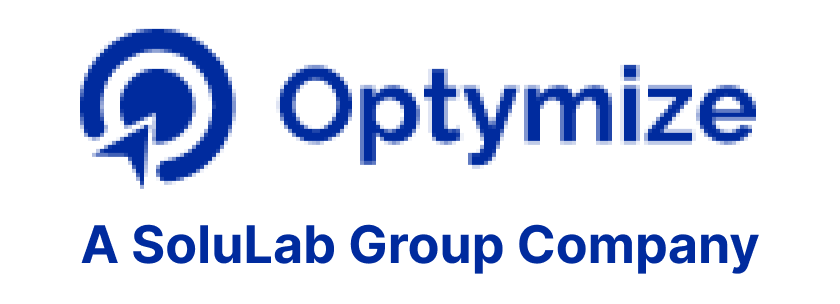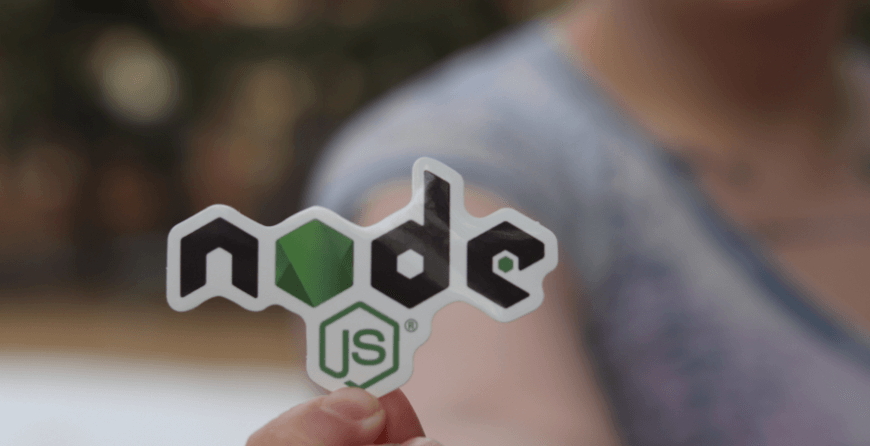NodeJS framework is one of the most popular runtime environments for running JavaScript code. It revolutionized web development with its ability to implement JavaScript scripting on the server side. It gained huge momentum among developers to create scalable web applications because of its quick operation and high scalability features.
With time, many NodeJS Frameworks entered the market that allowed developers to focus more on the convection and less on the configuration part.
These web frameworks provide unique operations for specific enterprise needs and hence their demand in the IT industry has grown exceptionally.
So, If you are a web developer trying new tools and frameworks to boost your web development practices then this article will meet your needs. If you are new to this domain and exploring potential tools to begin your journey, then this must-know list of top 10 NodeJS frameworks will help you.
What is A Framework
A framework is a platform that offers customization assets that help speed up the software development process. It may include various templating styles, a templating engine, various code libraries, and UI components.
Apart from this, frameworks give developers the joy of concentrating more on convention rather than worrying about the configurational part.
Developers rely on different frameworks to build different software solutions. At times, the developers have to use multiple frameworks for single software development. Because different frameworks have unique features that uplift development practices and make the solution more robust and agile.
What is NodeJS Framework?
NodeJS framework was released in 2009. It is a popular backend JavaScript runtime environment that executes JavaScript code outside of a web browser. It is free and open source and is primarily used to create scalable and custom web applications for enterprises.
Previously, the operations of JavaScript were limited, as it could only perform client-side scripting. But the NodeJS framework changed all this with its ability to perform JavaScript scripting on the server side. As a result, its popularity among developers increased, and many tech giants accepted this framework as their development tool.
The NodeJS framework is an ideal choice for the execution of real-time applications because of its event loop, which performs single threading operations and offers faster task execution as compared to Java, which heavily relies on multithreading to execute data-intensive operations.
Why Use NodeJS Framework
1. Faster Operations
- Many will regard this opinion as a myth, but it is not. NodeJS outperforms some of the frameworks because of its single-threaded task execution. One might criticize the fact that the NodeJS framework is single-threaded. Yes, it’s not single-threaded, but it performs similarly to an efficient single-threading model. This is done because of its event loop, which accepts only a few requests to process each one at a time, which increases its task execution speed.
- Moreover, Google chrome’s V8 engine gives NodeJS framework an added advantage as it was originally designed to work on the Chrome browser. So whenever Google optimizes Chrome’s engine, it gives NodeJS a slight edge.
2. Scalable Solution for Microservices
- The NodeJS Framework has been dominating microservices for some time now, and it’s able to serve its needs because of its ability to develop small parts of an application or small services.
- Many criticize this approach as it may seem like a tedious task, but in reality, building a huge set of services points to a system full of errors because as the service and application are being developed at large scale developers may overlook minimal errors which afterwards will result in a system failure.
- Whereas building small services and parts of the application promises that small errors will not be overlooked. As these small parts eventually shape the big-sized application it won’t create any hassle and will communicate to its other parts without any hindrance.
3. Huge Ecosystem Support
- NodeJS has huge ecosystem support, the default npm drives thousands of libraries each week in its ecosystem and it currently is operational with more than 800,000 libraries in the npm registry. It shows how much developers are keen to advance this framework in the future.
- With so much accessibility to huge sets of libraries, the frameworks will flourish like no other tool in the industry. It is open source and because of that it will only get more popular and will serve a huge audience with its agility.
Nodejs Frameworks Comparison
Sometimes developing software will require different types of frameworks to perform specific tasks and meet enterprise needs. NodeJS has framework that focuses on different requirements.
They are mainly 4 types of frameworks. They are MVC, HTTP server, Fullstack, Fullstack MVC, and REST API.
1. MVC(Model View Controller Framework)
MVC frameworks are based on the model view controller architecture that divides an application into 3 categories.
- i) Model- It manages necessary data logic from the backend part and directs it on the data storage path.
- ii) View- it is responsible for the execution of content on the client side. It controls and monitors how the contents should be rendered to the client side.
- iii) Controller- it is responsible for managing and controlling the request flow to execute tasks with greater efficiency. In other words, it holds control over the data transmitted from the model to views.
2. HTTP Server Framework
The HTTP server framework is responsible for the creation of web applications based on HTTP routing. ExpressJS is one of the popular frameworks and it helps to create these.
3. Fullstack MVC(Model View Controller) Framework
Fullstack MVC frameworks are ideal for building real-time web applications. Because they offer real-time data synchronization and other robust functionalities such as code libraries, templating engines, and UI elements. Apart from this, they are capable of handling both the front-end and the back-end parts of a web application.
4. REST(Representational State Transfer) API Framework
The REST API framework is used to manage and control CRUD requests while boosting the fast node server.
The Top 10 NodeJS Frameworks
A NodeJS framework is the base layer of any network application, which consists of tools, libraries, and UI components that allow customizing the web application as per clients’ needs.
Let’s take a look at this top NodeJS framework list.
1. ExpressJS
The ExpressJS framework is one of the best NodeJS frameworks. It is lightweight, free, and open-source. It facilitates faster and smarter server-side web development with its faster I/O speed.
Because of its robust API integration capabilities, it’s easy to implement APIs in the backend and make routing easy without sacrificing the core functionalities of NodeJS.
ExpressJS performs single threading operations that allow the quickest task execution. Hence, it’s preferred by many backend developers for creating real-time web applications.
Features:-
- > Instant API integration.
- > Templating engine.
- > Easy routing.
- > High-speed I/O.
- > Single-threaded nature.
- > Robust features that facilitate flexible web development practices.
- > Easy debugging.
2. Socket.io
Another great NodeJS framework is Socket.io. It has WebSocket architecture and can be used by various programming languages. It allows the building of complex WebSocket apps such as chats, dashboards, and others.
It also solves issues arising in the backend part of web solutions by using its extra capabilities and simple API integration.
Features:-
> Simple and clean API integration.
> Easy to resolve issues arising in a chat application.
> Auto error detection.
> Monitors regular updates and deployed features.
3. AdonisJS
AdonisJS is a NodeJS MVC framework that is capable of building web solutions with less code. It contains modules that enhance codes and make them error-free.
Moreover, you can choose the package required to build web solutions as per specific enterprise needs.
Features:-
> Requires minimal coding.
> Built-in modules.
> Support for ORM with SQL databases.
> Fast query creation.
4. Hapi.JS
Hapi.JS is a major NodeJS framework that is prominently used to build APIs. It provides you with the best plugins and features by which you can fully monitor and control the development cycle.
It allows developers to reuse the code rather than focus on coding from scratch for each project. Apart from this, it offers major features which include caching implementations, logging, error handling, and input validation.
Features:-
> Quick error handling system.
> Improved input validation.
> Enhanced caching implementation.
> Versatile ecosystem.
5. Meteor.JS
Meteor.JS is an open-source NodeJS framework that only relies on JavaScript for the creation of web solutions. It can also produce cross-platform code for quick prototyping, which makes it a go-to framework.
Meteor.JS is an ideal real-time NodeJS framework as it instantly transfers data between clients and servers for quick response and interaction.
Features:-
> Cross-platform availability and operations.
> Quick prototyping with CLI.
> Fast and easy integration with other frameworks.
> Huge community support.
6. Koa.JS
Koa.JS is a small and lightweight NodeJS framework that is primarily used for web and mobile application development. As it uses a stack-based approach to handle HTTP mediators, it handles API development flawlessly.
Moreover, it’s been created by the creators of ExpressJS, which makes it an easy option if you want to try either one of these. One thing that separates both is the complexity of the code, and this is where Koa.JS wins because of its ability to reduce complex code structures.
Features:-
> Powerful error handling.
> High customization.
> Lightweight and easy to learn.
> Ditches callbacks with the use of the ES6 Generator.
7. Total.JS
TotalJS is one of the popular NodeJS frameworks with a bunch of useful features that developers heavily rely on. It’s free and open source, which means any beginner can get their hands on this NodeJS framework to experience the ultimate flexible operations. Apart from this, it is well known for real-time high-precision tracking in advanced apps and solutions.
It outperforms some of the NodeJS frameworks mentioned above because of its quick scaling and high-performing abilities. Moreover, it requires minimal maintenance, because of which developers can concentrate more on the convention.
Features:-
> Asynchronous and extensible framework.
> It supports a RESTful routing engine.
> Robust API testing.
> Real-time tracking.
> Support multiple databases.
> Low-cost maintenance and high performance.
8. Derby.JS
DerbyJS is one of the best full-stack web development platforms and a NodeJS framework that has a model view controller architecture that allows the implementation of easy coding functionalities. Apart from this, it is capable of performing seamless data synchronization between the server and the client.
As it’s an MVC platform, it’s capable of building real-time collaboration solutions which work on both NodeJS and a web browser. Furthermore, if you prefer heavy customization, then this NodeJS framework gives you the ability to customize your code and build high-performing web solutions.
DerbyJS reduces the delivery of content in the front end part by rendering its client-side view on the server, which is great for SEO practices and for improving user experience.
Features:-
> Racer engine support.
> Real-time data synchronization.
> MVC templating.
> Execution of the client-side renders on the server side.
> Offline operations.
9. Mojito.JS
MojitoJS is another popular mobile and web development NodeJS framework built by the Yahoo network. It possesses similar characteristics to MVC platforms, so it is capable of building high-performing web solutions using JavaScript and other markup languages.
Other than this, its capabilities expand as it allows developers to build high-performing cross-platform applications on both the client and server sides.
Features:-
> Cross-platform application development.
> Easier data collection.
10. Sails.JS
Sails.JS is a data-centric development platform and a popular NodeJS framework. It’s the best framework for building quality-based customized web solutions as it supports all the databases and seamlessly integrates javascript frameworks.
Again, SailsJS has a code policy that allows developers to write less code but execute similar tasks, which again helps integrate npm modules effectively while maintaining high flexibility.
Features:-
> Auto generation of REST API.
> Advanced security policies.
> Object-relational mapping.
Conclusion
New technologies are invented every day, and the IT industry has a never-ending demand for building innovative things that can elevate operations. Frameworks are the base layer of any IT technology as it shapes the software solutions from its development to deployment. NodeJS frameworks are one of those which simplify the aspects of mobile and web applications. So, you may use any of the above NodeJS frameworks. Because each one of them has unique operations to help you customize the solution as per your need and perspective giving you more flexible operations.







